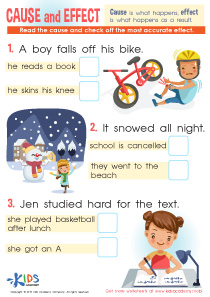Vocabulary enhancement Normal Reading Non-Fiction Worksheets for Ages 3-6
7 filtered results
-
From - To
Welcome to our Vocabulary Enhancement Normal Reading Non-Fiction Worksheets for Ages 3-6! These engaging worksheets are designed to help young learners build their vocabulary while exploring exciting non-fiction topics. Each activity incorporates fun illustrations and age-appropriate text, making it easy for children to connect words to real-world concepts. By focusing on context clues and word associations, these sheets foster critical thinking and enhance language skills. Perfect for early childhood classrooms or at-home learning, our worksheets support literacy development through interactive and enjoyable experiences. Ignite a passion for reading and learning in your little ones and watch their vocabulary flourish!
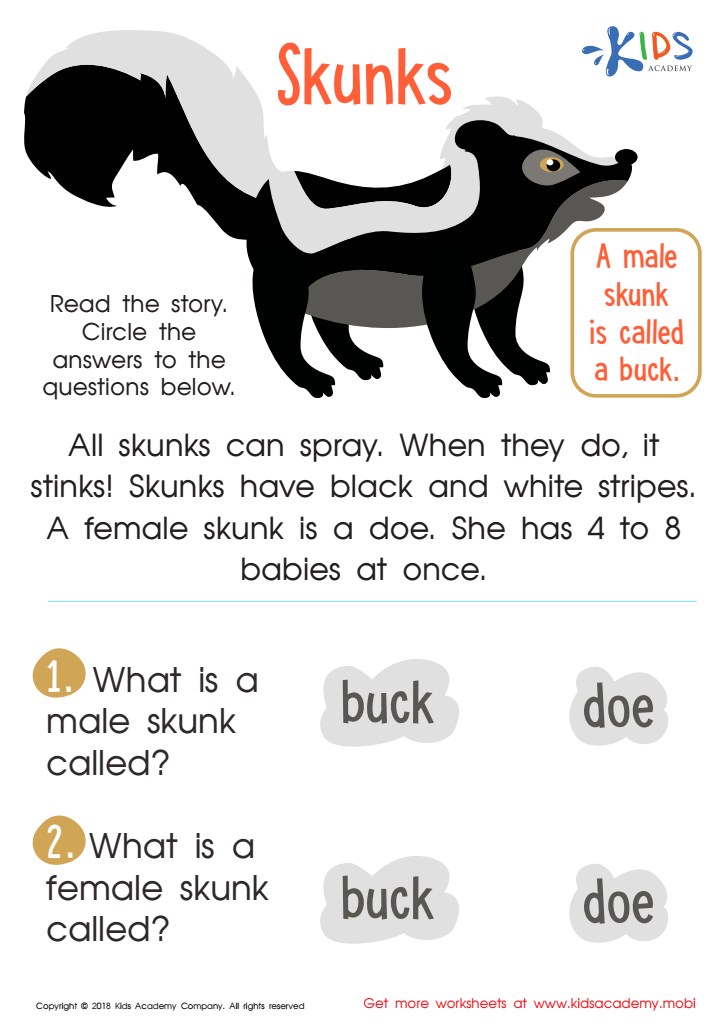

Skunks Worksheet
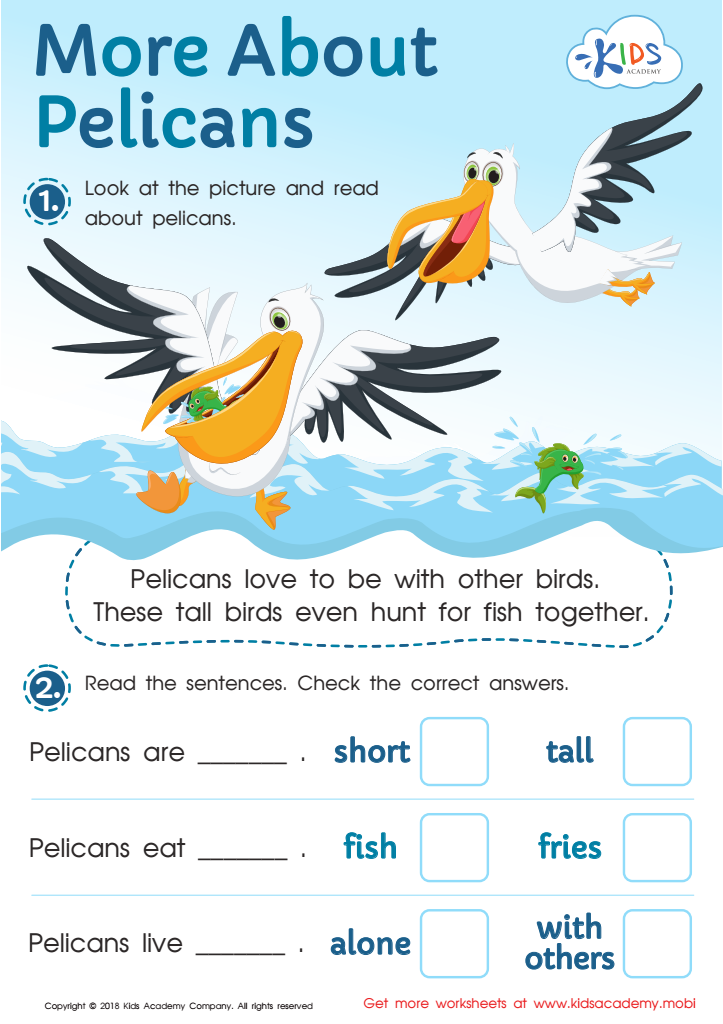

More About Pelicans Worksheet
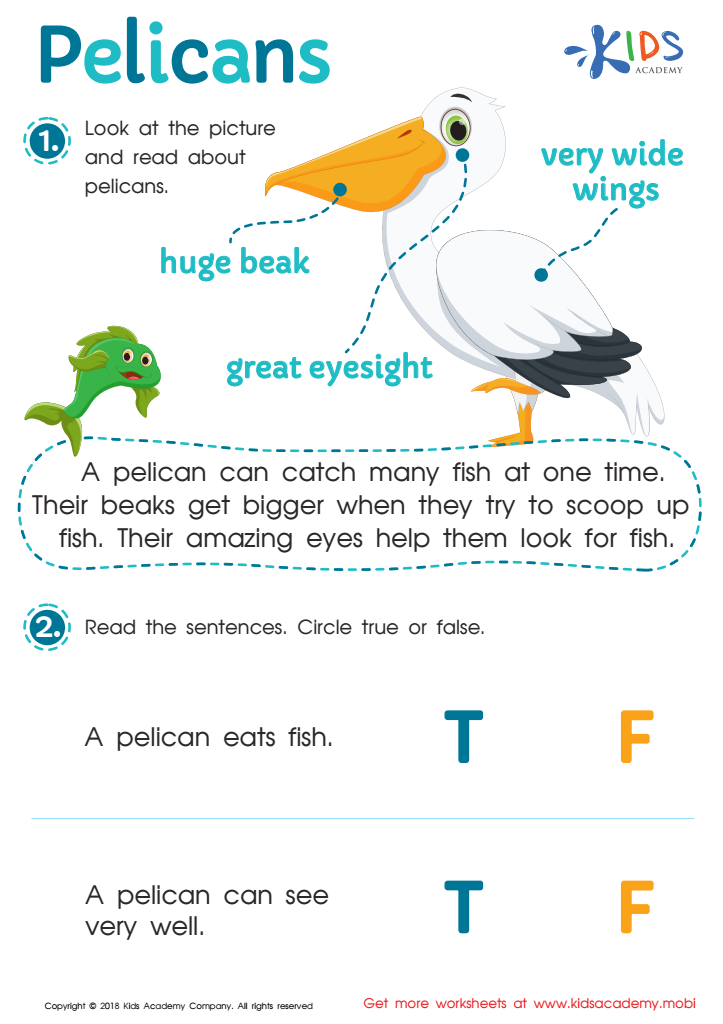

Pelicans Worksheet
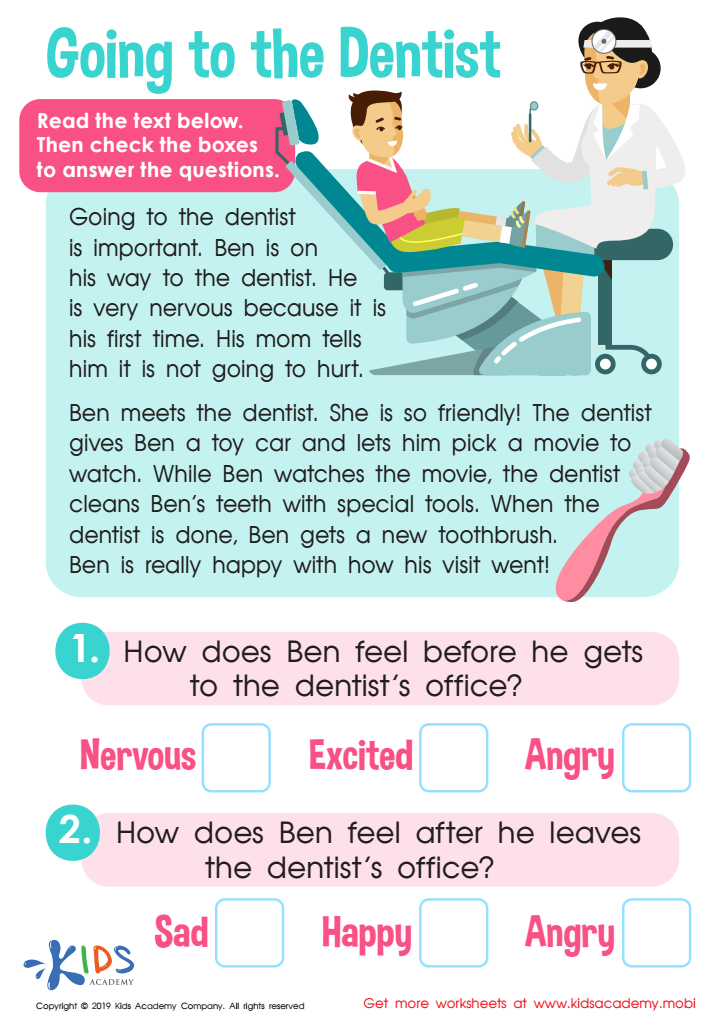

Going to the Dentist Worksheet
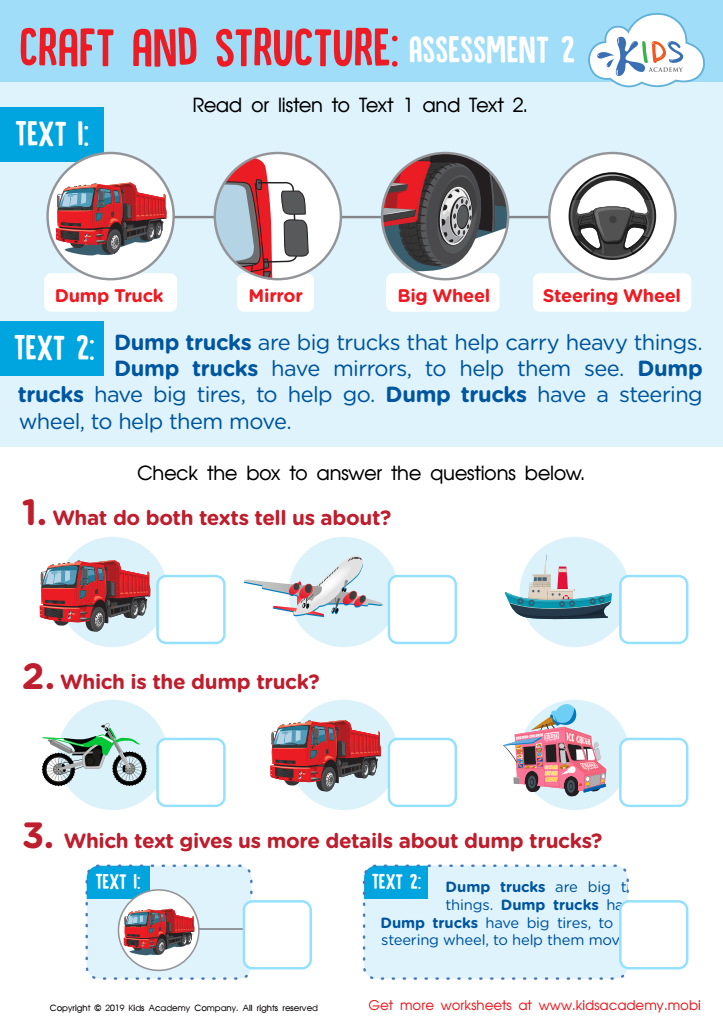

Craft and Structure: Assessment 2 Worksheet
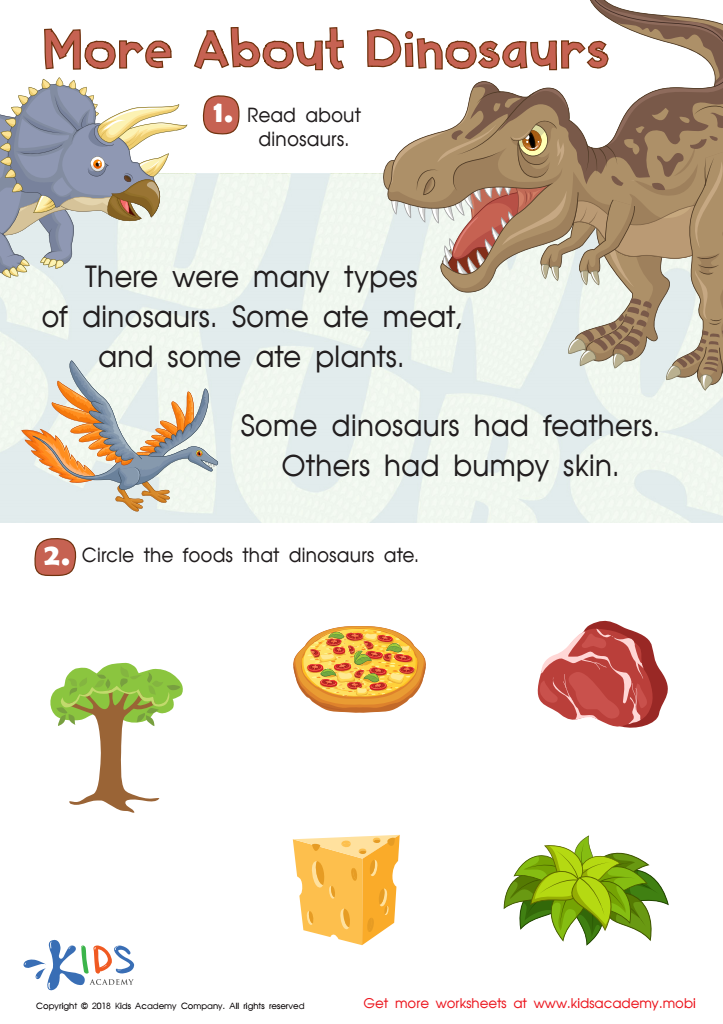

More About Dinosaurs Worksheet
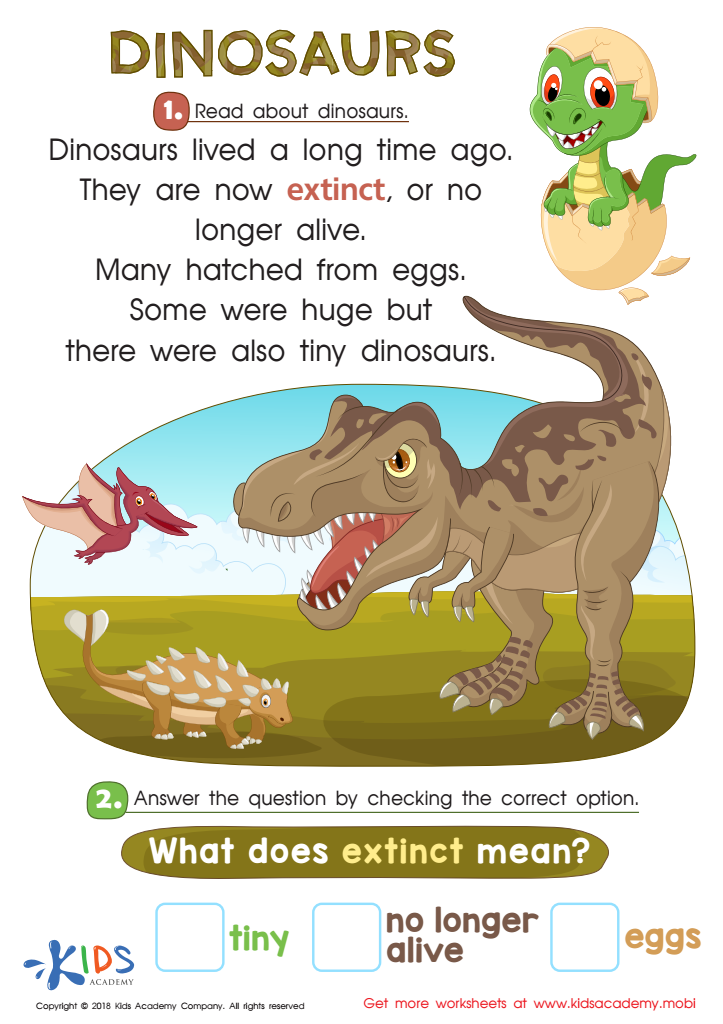

Dinosaurs Worksheet
Vocabulary enhancement through reading non-fiction is essential for children aged 3-6, as it lays the foundation for language development, critical thinking, and a lifelong love of learning. At this stage, children's brains are highly receptive to new words and concepts, making it an ideal time for vocabulary growth. Non-fiction books expose young readers to a variety of real-world topics, fostering curiosity and encouraging them to explore and ask questions. This genre can introduce children to everyday science, nature, technology, and cultures, helping them understand and engage with their environment.
For parents and teachers, nurturing vocabulary is vital, as it significantly impacts reading comprehension and overall academic success. With a rich vocabulary, children can express themselves more effectively and develop stronger communication skills, which are crucial for collaboration and social interaction. Furthermore, enhanced vocabulary aids in developing critical thinking skills, allowing children to analyze and reason about the information they encounter.
Investing time in reading non-fiction not only encourages children's language skills but also cultivates a sense of wonder and understanding of the world around them. Ultimately, parents and teachers play a crucial role in guiding these young learners in their discovery and appreciation of language through engaging and informative texts.
 Assign to My Students
Assign to My Students








